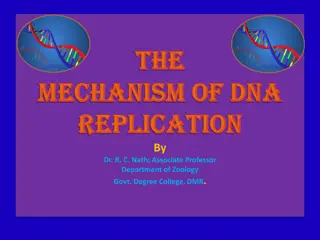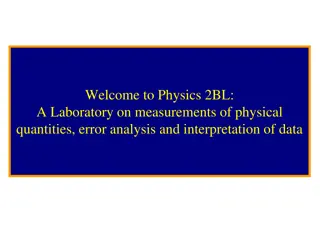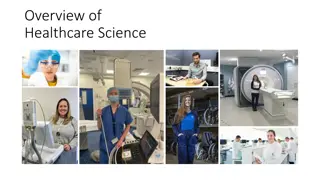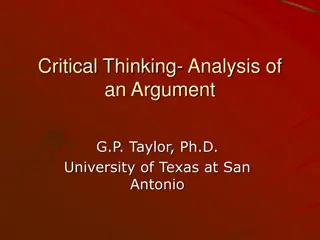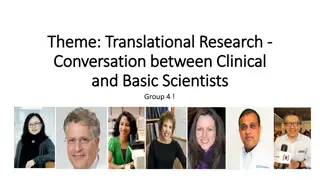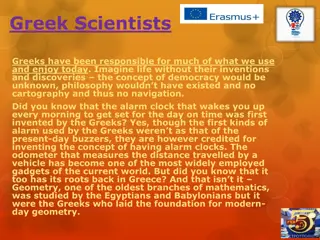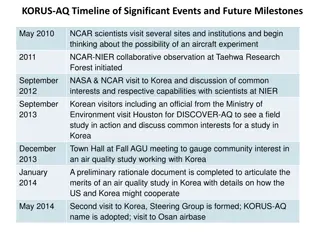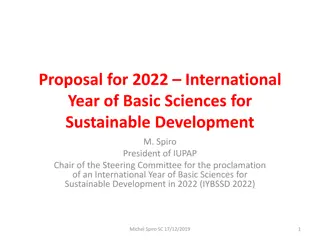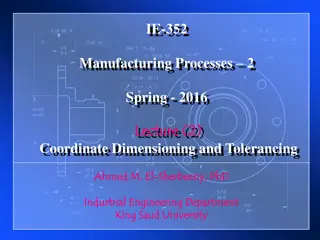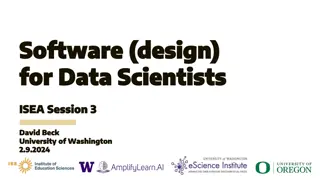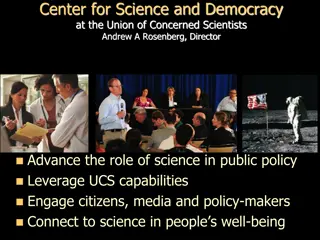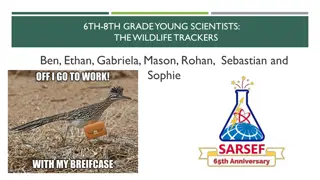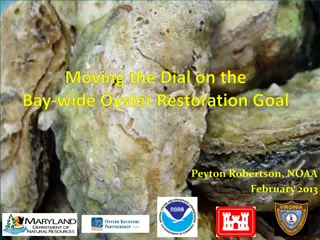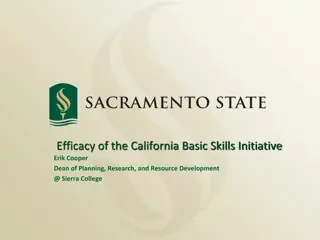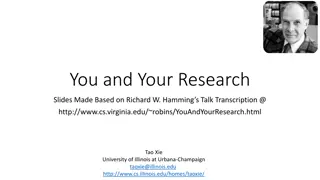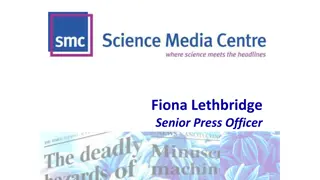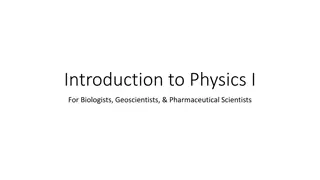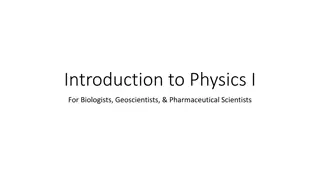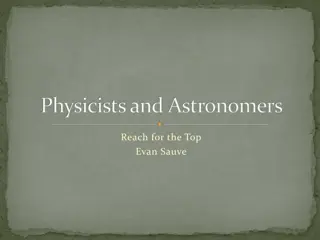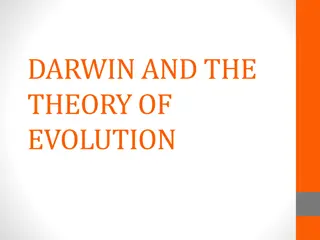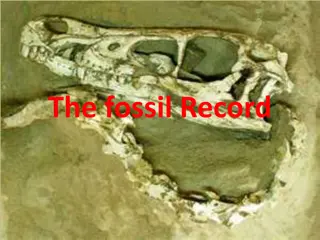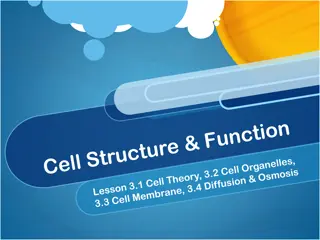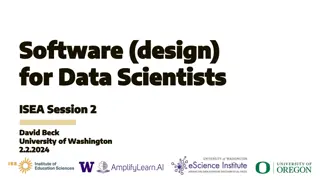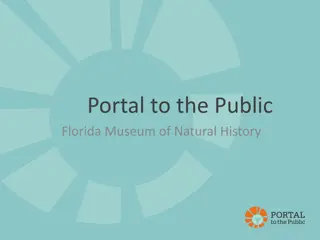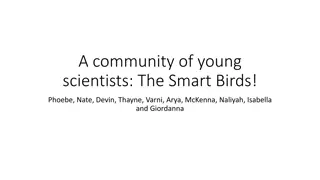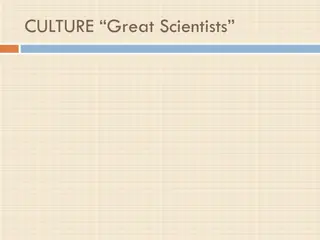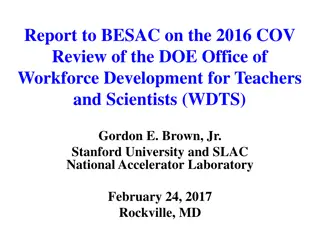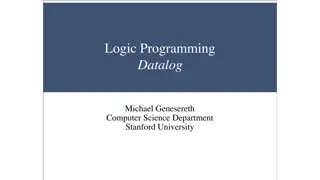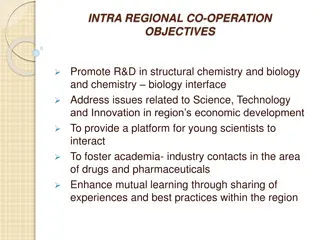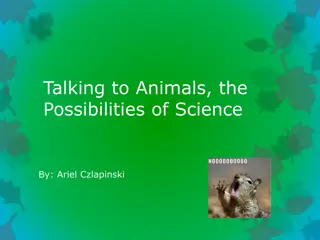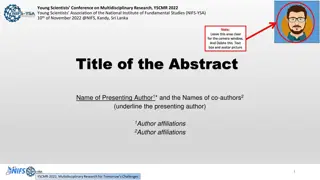Improving Outcomes in Basic Reading, Mathematics, and ESL Literacy
This presentation highlights the significant improvement in outcomes for basic reading (57%), basic mathematics (82%), and ESL literacy (71%). It discusses the factors contributing to these improvements and showcases the potential for further progress.
5 views • 11 slides
Elementary Scientists and Inventors Escape Room
Explore the world of scientists and inventors through an engaging escape room activity. Dive into the lives of individuals like Elizabeth Blackwell, Ada Lovelace, and Isaac Newton by completing interactive tasks that challenge your knowledge and problem-solving skills. Uncover codes, match inventors
0 views • 24 slides
Basic Education 2020/21-2024/25 Strategic Plan Presentation Overview
This presentation outlines the purpose, size, and shape of the Basic Education sector, focusing on the Department of Basic Education's Annual Performance Plan for 2023/24. It highlights government priorities, actions towards realizing Schooling 2030, progress on deliverables, budget allocations, and
3 views • 75 slides
Annual Performance Plan 2023/24 for Basic Education Sector
The Annual Performance Plan 2023/24 for the Basic Education sector outlines strategic priorities, government initiatives, and progress towards educational goals aligned with the National Development Plan. The presentation covers key areas such as sector size, educational system structure, language d
0 views • 75 slides
Understanding the Mechanism of DNA Replication
Explore the intricate process of DNA replication, as elucidated by renowned scientists like Dr. R. C. Nath and Nobel laureate Arthur Kornberg. Delve into the essential enzymes, proteins, and basic rules involved in the replication of genetic material, shedding light on initiation, elongation, and te
3 views • 22 slides
Understanding Algorithm Analysis and Scalability in Computer Science
Scientists and computer scientists often encounter scale differences, and scalability is crucial for accommodating growing inputs. Algorithm analysis, data structures, running times, and experimental studies are key aspects explored in the context of algorithms. Choosing the right type of plot for l
4 views • 17 slides
Physics 2BL Laboratory: Measurements, Error Analysis & Data Interpretation
This Physics 2BL laboratory course focuses on measurements of physical quantities, error analysis, and interpretation of data. Students learn how scientists create models of natural phenomena and the practical aspects of conducting scientific experiments. Pre-requisites include Physics 2A, 4A or equ
0 views • 31 slides
Insights into Healthcare Science Careers and Specializations
Explore the diverse field of healthcare science through roles like biomedical scientists, clinical scientists, and support workers. Learn about the wide-ranging duties and specializations within the healthcare science sector, including laboratory research, equipment development, and patient care. Di
1 views • 17 slides
Enhancing Critical Thinking Skills in Scientific Research
Critical thinking plays a pivotal role in scientific endeavors, enabling researchers to observe, hypothesize, experiment, and draw valid conclusions. Being a natural skeptic is crucial for scientists to scrutinize research papers effectively. By carefully analyzing prior findings, research technique
2 views • 20 slides
Binary Basic Block Similarity Metric Method in Cross-Instruction Set Architecture
The similarity metric method for binary basic blocks is crucial in various applications like malware classification, vulnerability detection, and authorship analysis. This method involves two steps: sub-ldr operations and similarity score calculation. Different methods, both manual and automatic, ha
0 views • 20 slides
Human Frontier Science Program - Advancing Life Sciences Research
The Human Frontier Science Program (HFSP) is an international collaboration established in 1989 to promote and fund basic research in life sciences. With an annual budget of around USD 57M, HFSP focuses on innovative research to extend the frontiers of understanding complex mechanisms in living orga
0 views • 30 slides
Understanding Electromagnetic Induction and Wave Characteristics
Explore the concept of electromagnetic induction, its explanation by scientists, and the presence of a black strip on your debit card. Discover the basic characteristics of waves, including amplitude, crest, trough, wavelength, phase, frequency, and speed. Dive into the world of waves and their ener
0 views • 99 slides
Enhancing Translational Research: Bridging the Gap Between Clinical and Basic Scientists
Translational research aims to translate basic scientific discoveries into practical applications for patient care. This involves moving research from the laboratory to clinical settings effectively and safely. Key aspects include designing studies using relevant models, documenting mechanisms of ac
0 views • 8 slides
Contributions of Greek Scientists to Modern Society
Greeks have made significant contributions to modern society through their inventions and discoveries. Without their innovations, concepts like democracy, philosophy, cartography, and navigation would be unknown. Greek scientists like Thales of Miletus, Aristotle, and Pythagoras laid the foundation
0 views • 14 slides
KORUS-AQ Timeline of Significant Events and Future Milestones
NCAR scientists explore the possibility of an aircraft experiment in Korea leading to the formation of KORUS-AQ. Collaborative efforts, meetings, and preparations are made over several years, culminating in the finalization of the International Agreement and deployment plans. The timeline showcases
0 views • 14 slides
Celebrating Basic Sciences in 2022 for Sustainable Development
The proposal suggests declaring 2022 as the International Year of Basic Sciences for Sustainable Development, aiming to highlight the crucial role of curiosity-driven basic sciences in societal, environmental, and economic progress. Recognizing the significant contributions of basic sciences to vari
5 views • 13 slides
Understanding Basic Hole and Shaft Systems in Manufacturing Processes
Basic Hole and Shaft Systems are essential procedures for determining mating part dimensions and tolerance information in manufacturing drawings. By knowing parameters such as Basic Size, Allowance, Hole Tolerance, and Shaft Tolerance, accurate and functional parts can be produced. This system ensur
0 views • 36 slides
Understanding Software Design Principles for Data Scientists
Explore the importance of clear design in software development for data scientists, learning from past failures like the Therac-25 incident. Dive into creating understandable designs, user stories, and the significance of simplicity and careful feature selection. Follow a practical example in design
0 views • 88 slides
Advancing Science in Public Policy: The Role of the Union of Concerned Scientists
The Center for Science and Democracy at the Union of Concerned Scientists, led by Director Andrew A. Rosenberg, aims to promote the role of science in public policy by leveraging UCS capabilities and engaging citizens, media, and policymakers. Strengthening the voice for science through the UCS Scie
0 views • 5 slides
Young Scientists Investigate Wildlife Behavior and Habitat Effects
The Wildlife Trackers, a group of young scientists, conducted a study to understand how the presence of people and different habitats affect the behavior and flight responses of animals in their neighborhood. By measuring flight response distances of various animals like birds, lizards, and rabbits,
0 views • 11 slides
Oyster Restoration Efforts in Chesapeake Bay
Efforts are underway to restore oyster populations in Chesapeake Bay tributaries by 2025. Various workgroups, stakeholders, and scientists are collaborating to define restoration goals, develop tributary plans, conduct population surveys, and manage the restoration process. The Harris Creek tributar
0 views • 17 slides
Efficacy of the California Basic Skills Initiative by Erik Cooper
Detailed examination of the California Basic Skills Initiative led by Erik Cooper, highlighting the importance of basic skills in college success. The initiative focuses on foundational skills in reading, writing, math, and English as a Second Language, aiming to address the remediation needs of a s
0 views • 34 slides
Characteristics of Great Scientists: Insights from Richard W. Hamming's Talk
Explore the essential characteristics of great scientists as outlined by Richard W. Hamming. Delve into the role of luck, courage, age, and working conditions in shaping scientific success. Gain valuable perspectives on the mindset and approach necessary for making impactful contributions in the fie
0 views • 37 slides
Discover Faculty Opinions: A Platform for Scientific Insights
Faculty Opinions, powered by F1000 Prime, is a platform where over 8,000 leading life scientists nominate and review important research articles. With personalized alerts and expert commentary, scientists can stay updated on groundbreaking discoveries without sifting through vast amounts of literatu
0 views • 25 slides
Celebrating Efforts of Scientists, Statisticians, and Journalists: Promoting Access to Best Science and Engaging the Experts
There is much to appreciate in the collaborative efforts of scientists, statisticians, and journalists in ensuring accurate and relevant information reaches the public. With the rising politicization of science, it is crucial to maintain access to the best scientific knowledge for journalists and en
0 views • 8 slides
Introduction to Physics I for Biologists, Geoscientists, & Pharmaceutical Scientists
Delve into the fundamental concepts of physics tailored for biologists, geoscientists, and pharmaceutical scientists. Explore key principles and applications in a concise and engaging manner, enhancing your understanding of the physical world around us.
0 views • 4 slides
Physics Course for Biologists, Geoscientists, and Pharmaceutical Scientists
This physics course tailored for biologists, geoscientists, and pharmaceutical scientists covers lectures, exercises, and exams in both English and German. The course includes weekly exercise sessions, recommended literature, exam details, and study materials available on the course website. Student
0 views • 15 slides
Influential Scientists in History: Newton, Hawking, Einstein, and Kepler
Explore the remarkable contributions of influential scientists from different eras - Sir Isaac Newton, Stephen Hawking, Albert Einstein, and Johannes Kepler. Learn about Newton's laws of motion, Einstein's theory of relativity, Hawking's work on black holes, and Kepler's laws of planetary motion.
0 views • 10 slides
Darwin and the Theory of Evolution: A Comprehensive Overview
Darwin's Theory of Evolution encompasses the concepts of organisms changing over time and life evolving through natural selection. Influenced by scientists such as James Hutton, Jean Baptiste Lamarck, and Alfred Russel Wallace, Darwin's theory culminates in the idea of evolution by natural selection
0 views • 9 slides
Understanding Fossils: Formation, Types, and Significance
Explore the world of fossils and learn about their formation process, different types such as mold, cast, and petrified fossils, and the valuable insights they provide to scientists. Discover how fossils capture the remains of ancient plants and animals, revealing clues about the past through their
0 views • 25 slides
Understanding Cells: Structure, Function, and Evolution
Explore the world of cells, the basic units of life, from their structure and function to the history of cell theory. Learn about prokaryotic and eukaryotic cells, the cytoskeleton, and key organelles. Dive into differences between animal and plant cells and the critical role of chloroplasts in ener
0 views • 28 slides
Understanding the Importance of Software Design for Data Scientists
Today's ISEA Session 2 with David Beck from the University of Washington delves into the critical role of intentional software design for data scientists. The session covers the software design approach, user-centric design stories, use cases, components, testing strategies, and the benefits and dra
0 views • 76 slides
Exploring the Portal to the Public at the Florida Museum of Natural History
The Portal to the Public program at the Florida Museum of Natural History aims to bridge the gap between scientists and the public through interactive sessions. The program focuses on informal science education, STEM learning, and science communication workshops for scientists. Funded by the Nationa
0 views • 15 slides
Insights from Young Scientists on How Temperature Affects Bird Behavior
A group of young scientists known as the Smart Birds conducted a study on how temperature influences bird behavior. Through observations recorded in the morning and late afternoon, they found that birds were most active when the temperature ranged between 71-90 degrees Fahrenheit. The study revealed
0 views • 14 slides
Great Scientists Who Shaped Our World
Discover the remarkable contributions of renowned scientists like Galileo, Louis Pasteur, Karl Landsteiner, Francis Crick, James Watson, and Jane Goodall. From revolutionizing astronomy to groundbreaking discoveries in microbiology and genetics, these brilliant minds have left a lasting impact on me
0 views • 8 slides
Review of DOE Office of Workforce Development for Scientists
Assessment of the 2016 review of the Department of Energy's Office of Workforce Development for Teachers and Scientists (WDTS) including its mission, programs reviewed, charges, and additional considerations to enhance workforce development in STEM fields.
0 views • 25 slides
Unraveling the Complexities of Hex Game Encoding Paradigms
Hex, a strategic two-player game invented by John Nash and Piet Hein, poses intriguing challenges for mathematicians and computer scientists. This article delves into different paradigms for encoding Hex game rules, exploring the performance of each. From basic observations to advanced approaches li
0 views • 20 slides
Strategies for Enhancing Scientific Collaboration in South Asia
This content highlights the objectives of intra-regional co-operation to promote R&D in structural chemistry and biology, address science, technology, and innovation issues, create platforms for young scientists, foster academia-industry contacts in pharmaceuticals, and share best practices within t
0 views • 4 slides
Could Humans Really Talk to Animals? Exploring the Potential Through Science
Discover the fascinating world of communication between humans and animals as scientists delve into the possibility of translating thoughts and ideas across species boundaries. From Nim Chimpsky to Alex the African grey parrot, examples show how intelligent creatures can learn to communicate through
0 views • 5 slides
Young Scientists Conference on Multidisciplinary Research 2022
The Young Scientists Conference on Multidisciplinary Research 2022, organized by the Young Scientists Association of the National Institute of Fundamental Studies, is set to take place on the 10th of November 2022 at NIFS in Kandy, Sri Lanka. The conference will focus on addressing tomorrow's challe
0 views • 4 slides




